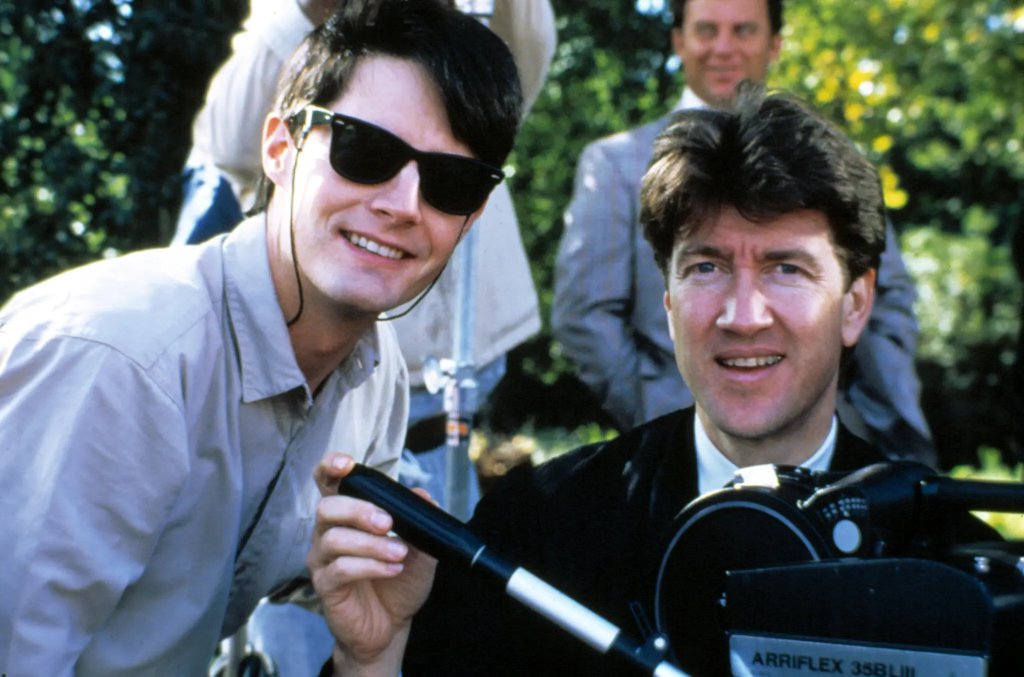David Lynch, the master of surreal storytelling and creator of some of cinema’s most iconic works, has passed away at the age of 78. Known for Blue Velvet, Mulholland Drive, and the groundbreaking series Twin Peaks, Lynch’s family announced his passing in a heartfelt Facebook post.
“With heavy hearts, we share the news that David Lynch has left us. His art touched millions, but his kindness and creativity touched those lucky enough to know him personally. As he would say, ‘Keep your eye on the donut, not the hole.’”
The cause of death has not been disclosed, but Lynch revealed in 2024 that he was battling emphysema, a condition attributed to his lifelong smoking habit.
Who Is David Lynch?
Born in Missoula, Montana, in 1946, David Lynch grew up in a loving family and moved frequently due to his father’s career as a research scientist. Despite his sunny personality, Lynch had an early fascination with the dark and mysterious aspects of life, which would later define his artistic vision.

Originally a painter, Lynch studied at the Pennsylvania Academy of the Fine Arts, where he began experimenting with moving images. His debut short film, Six Men Getting Sick (Six Times) (1966), laid the foundation for his transition into filmmaking.
Lynch’s first feature, Eraserhead (1977), showcased his distinctive style—eerie, dreamlike, and unsettling. The film became a cult classic and marked the beginning of an illustrious career that would span nearly five decades.
David Lynch’s Career Highlights
David Lynch’s career was a testament to artistic innovation. His works often blended surrealism with psychological depth, earning him a reputation as one of the most unique filmmakers of his time.

Some of his most notable achievements include:
- The Elephant Man (1980): This poignant biographical drama about Joseph Merrick earned Lynch his first Academy Award nomination for Best Director.
- Blue Velvet (1986): A neo-noir masterpiece that explored the darkness beneath suburban life, starring Kyle MacLachlan and Isabella Rossellini.
- Twin Peaks (1990): A groundbreaking TV series that captivated audiences with its blend of mystery, horror, and quirky humor, cementing Lynch as a cultural icon.
- Mulholland Drive (2001): Widely regarded as one of the greatest films of the 21st century, this psychological thriller explored the dreams and nightmares of Hollywood.
Lynch was honored with numerous accolades, including an honorary Academy Award in 2019 for his lifetime contributions to cinema and a Golden Lion for Lifetime Achievement at the Venice Film Festival in 2006.
The Lynchian Style
The term Lynchian has become synonymous with a storytelling approach that combines the ordinary and the bizarre. Lynch’s works often juxtaposed idyllic settings with dark, unsettling undercurrents, crafting narratives that were both dreamlike and haunting.

For example, in Blue Velvet, a severed ear found on a suburban lawn leads to a journey into a hidden world of violence and depravity. Similarly, Twin Peaks peeled back the layers of a seemingly quaint town to reveal its darker secrets.
Lynch’s films are celebrated for their fragmented timelines, enigmatic characters, and hypnotic visuals, ensuring their place in cinematic history.
Beyond Filmmaking
David Lynch was more than a filmmaker—he was a true Renaissance man. He was a painter, musician, furniture designer, and advocate for transcendental meditation. Lynch credited meditation for his creativity and inner peace, describing it as a practice that allowed him to access “unlimited reserves of energy and happiness.”

“I only wanted to ever be a painter, but painting led into filmmaking,” Lynch once said. “I always say, I go where the ideas take me.”
How Did David Lynch Die?
David Lynch’s cause of death has not been officially revealed. However, in 2024, Lynch disclosed his battle with emphysema, which had rendered him largely homebound due to the risks associated with COVID-19 and other illnesses. Despite his health struggles, Lynch maintained his creative spirit and continued to work on projects from his home.
Tributes to a Legend
Tributes from fans and collaborators have poured in since Lynch’s passing. Actor Kyle MacLachlan, who worked closely with Lynch on Twin Peaks and Blue Velvet, shared:

“David was the most authentically alive person I’ve ever met. He was in tune with the universe and his imagination on a level we can only aspire to. I will miss him beyond words.”
Steven Spielberg, who cast Lynch in The Fabelmans (2022), praised him as a “singular visionary” whose work was “as unique as it was inspiring.”
A Lasting Legacy
David Lynch’s influence on film, television, and art is immeasurable. His ability to weave the mysterious and the surreal into compelling narratives has inspired countless filmmakers and captivated audiences worldwide.
Through films like The Elephant Man, Mulholland Drive, and Twin Peaks, Lynch left an indelible mark on the world of storytelling. As he once said, “I like things that leave some room to dream.”
David Lynch’s art ensures that audiences will continue to dream, explore, and embrace the unknown for generations to come.


